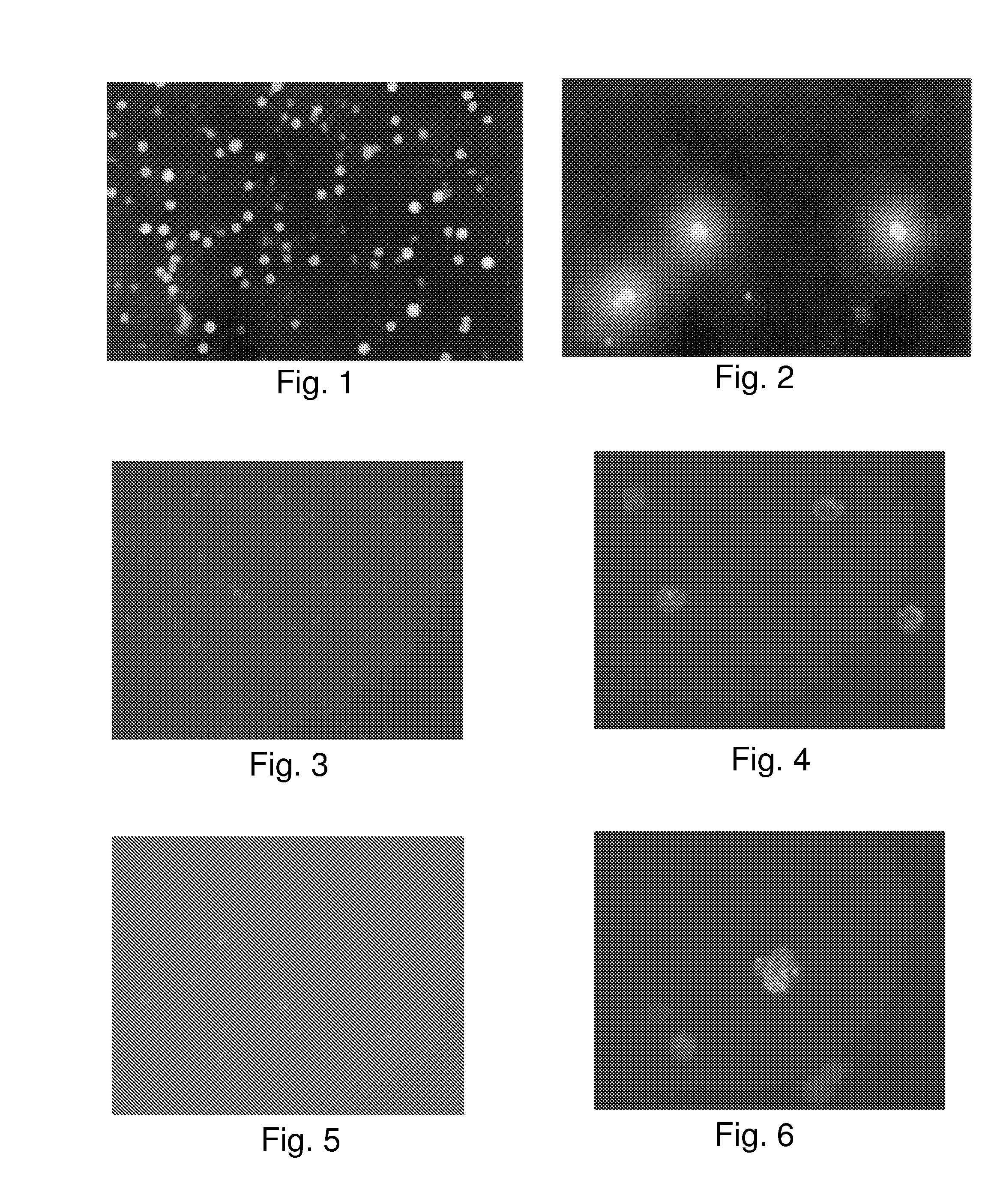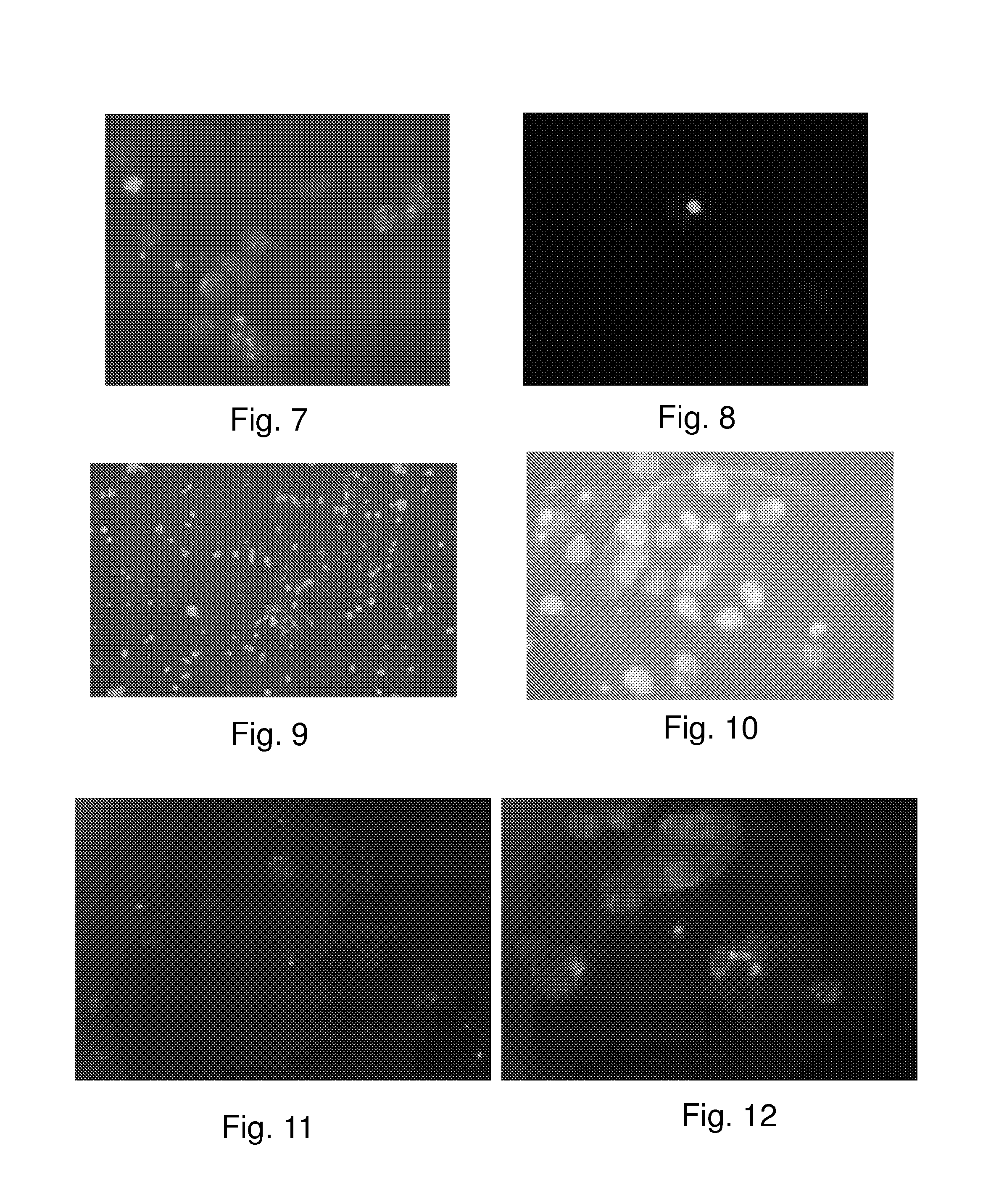Monoclonal antibodies to human thymidine kinase to treat cancer
a thymidine kinase and monoclonal antibody technology, applied in the field of cancer and viral infections, can solve the problems of no prior art studies or papers known to applicants that propose a plausible transport mechanism moving, and achieve the effects of enhancing the cytotoxic effect of tk1, and reducing the removal of healthy normal tissu
- Summary
- Abstract
- Description
- Claims
- Application Information
AI Technical Summary
Benefits of technology
Problems solved by technology
Method used
Image
Examples
example 1
Production of Monoclonal Antibodies Binding to TK1
[0151]Hybridoma cell lines producing antibodies to TK1 were produced by methods generally known in the art. The method does not seem to be relevant nor does the epitope to which the antibody binds. Applicant has had success with antibodies to the carboxy terminal end of TK1, to the active site of TK1 and to other epitopes on TK1 of undetermined location. Antibodies may be made to partial proteins, purified TK1, or whole synthetic protein recombinants manufactured from the TK1 protein sequence, placed as vectors into bacteria and wheat and purified from the supernatant.
example 2
[0152]Detection of active TK1 in samples from cancer patients using anti-TK1 antibody.
[0153]It has been established that TK activity is elevated in the serum of patients with different kinds of cancer. For the most part, sera of patients with cancer showed an elevated TK1 activity compared to control patients.
[0154]A similar correlation between serum TK1 values and the presence of cancer was obtained using anti-TK1 monoclonal antibodies for measurement of TK1. Serum samples were obtained from cancer patients. Each sample was assayed for TK activity by a method like that of Example 1. The same samples were then quantitated blindly on an ELISA test with Clone 1 antibody using different serum dilution levels. A dilution of 1:16,000 was found to give the best results. The data were confirmed by Western blot analysis.
[0155]It can be seen from the TK1 activity measurements that the correlation is excellent between antibody binding data and the standard TK1 activity assay. The data demonst...
example 3
Diagnostic and Prognostic Tests Utilizing Anti-TK1 Antibodies
[0156]Additionally, this invention contemplates development of specific tests, which utilize anti-TK1 antibodies to diagnose the presence of cancer. An example of this embodiment is comprised of the use of IFA-and ELISA-based, non-invasive, monoclonal TK1 tests that indicate both early cancer onset and provide clinical prognosis during treatment. The widespread appearance of TK as an early cancer marker and the data suggesting its usefulness as a prognostic tool for the clinician signals an important development in obtaining higher cancer survival rates.
[0157]For example the invention contemplates an IFA based diagnostic test designed to detect TK1 in patient tissue samples and blood, using a fluorescent compound to detect the binding of antigen and antibody. The anti-TK1 antibody is labeled with the fluorescent compound and its presence is detected using a fluorescence microscope. This IFA test may be used to detect the p...
PUM
| Property | Measurement | Unit |
|---|---|---|
| molecular weights | aaaaa | aaaaa |
| molecular weights | aaaaa | aaaaa |
| time | aaaaa | aaaaa |
Abstract
Description
Claims
Application Information
 Login to View More
Login to View More - R&D
- Intellectual Property
- Life Sciences
- Materials
- Tech Scout
- Unparalleled Data Quality
- Higher Quality Content
- 60% Fewer Hallucinations
Browse by: Latest US Patents, China's latest patents, Technical Efficacy Thesaurus, Application Domain, Technology Topic, Popular Technical Reports.
© 2025 PatSnap. All rights reserved.Legal|Privacy policy|Modern Slavery Act Transparency Statement|Sitemap|About US| Contact US: help@patsnap.com



